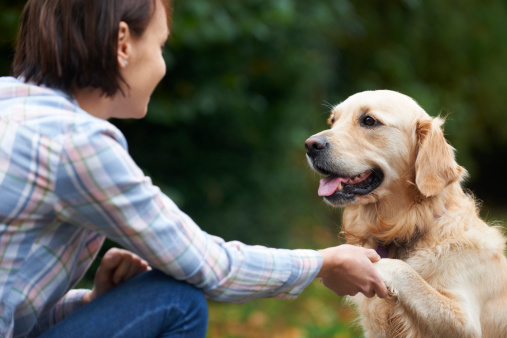It is innate human behavior to establish relationships. We Indians seem to be more specialized in this trait. We meet a stranger and within no time he/she becomes our ‘uncle’, ‘brother’, ‘nephew’, ‘aunty’, ‘sister’ etc. But we do have the craving to establish close relationships with other people. Forget the humans; do the animals also crave like that? What relationship your dog has with your neighbor’s dog I can’t say, but if you are a true dog lover, I can certainly predict his relationship with you!
Like the humans, many domesticated dogs also develop the craving to establish a relationship with the owner. And the funniest part is that the relationship is like that of child and the parent. Of course dog is always the child. One might argue that dogs are known to be pack animals and they always follow the leader. In a family they consider the owner as their leader. Yes, that is true. But recent studies by dog behaviorists have shown that prolonged association of more than 15000 years with the mankind, dogs have developed traits which show that they treat the owner as the parent.
The owners on the other hand are quite passionate about their relationship. They imagine their pooch as their own child and express happiness on ‘his’ achievements and mourn the loss when the pooch dies. I have seen many owners undergo through a phase of depression when they lose their pet.
The bond being a mutual one, it is time to understand how it works? Dogs are highly sensitive in discerning love of the owner. I will cite an example of my own Labrador bitch Goldy. She came to me when she was nearly four years old. Her original owner, my mentor late Mr. Ramesh Dutt, my mentor was a great dog lover and a specialist breeder of Labradors and Great Danes. Goldy, on reaching my place, appeared to be quite a gentle dog. Knowing well about the genial nature of Labradors, I left her alone with my two and half year old daughter for five minutes. And lo, within a minute there was a deep throated growl and next moment I heard the shriek of daughter. I rushed to the site and found daughter lying flat on the ground and Goldy held her frock near her stomach in her mouth. Without losing cool, I went close to Goldy, looked in her eyes with all the anger in my eyes that I could muster and asked her to leave her mouth hold. She did it ungrudgingly and wagged her tail.
I knew it was my mistake to have left Goldy alone without proper introductions. I observed that it took merely few hours for Goldy to make out who her new parent was. Once she realized she became an ideal child and was friendly with everyone in the family. Dogs look at the owner as parent because they fully depend upon him or her for everything, from food to love and security. Once assured of that they look forward to all the affection a parent would bestow upon their child.
Researchers in the US categorize dog owners in to three categories, viz. the humanist, protectionist and dominionist. Dogs with first category of people live a high profile life style, with all the facilities at their beck and call. They are like the children of the superrich families. The second category of the owners is those who value their dogs considerably and cannot see their pet in pain. And the third category is of those who consider dogs as dogs only and use them for various purposes, without allowing them to live inside the house with them. In India we have a majority of the people who fall in the second category, followed by the people of the third and first category, respectively.
Fortunately, a dog does not categorize the owners. Once owned his faithful allegiance is for the life. The animal behavior specialists in the Universities and research institutes of the developed nations are carrying out detailed researches to find out the reasons, why a dog considers a human owner as a parent and vice-versa! But the fact remains that a human being once he takes to dogs, there is no returning and a dog is always willing to welcome the human parent.
In this relationship, however, there is a snag. Dog’s life-span is much shorter than the owners’. One must understand this fact and be prepared to face the worst. Parting is painful, but it is inevitable. On the other hand, world over, we have a number of stories, when dogs awaited their masters who lost their life unexpectedly away from home, or gave up food if the master expired in their presence. Even the epic Mahabharata mentions about Yudhishtir’s dog, which followed him to the heaven.
To conclude, the dog-human-dog relationship is quite complex and difficult to understand. Whatever, the relationship is there to stay.
